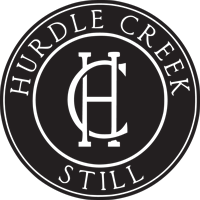The Process

Barley, malt and, sometimes, triticale are milled and then mixed with hot water in the mash tun where the starch in the grain is converted into sugar. This is the same process that craft brewers use when making beer.
We source our sustainable, chemcial free barley from Selby Pastoral Co. in Brocklesby, just across the border in NSW.
The sugary sweet wash from the mash is collected, cooled and fermented. We then add yeast which eats the sugars and produces our dear friend alcohol.
The spent grains from the process are fed to our happy herd of shorthorn cattle.

Distillation takes place in our recently extended custom configured twelve-plate reflux still fired by 2 big gas burners. The fermented wash (or beer) is distilled a minimum of two times to produce a clean dry spirit with a soft but distinct grain character.
Distillation #1 "strips" the alcohol out of the beer, the results are low wines at about 50-60% alcohol.
The low wines are then further processed through Distillation #2. At this point we take great care in collecting only the middle cut or “hearts” from the run at up to 95% abv, discarding the “foreshots” and collecting the "heads" and "tails" (the "feints") for reprocessing.
If we're making gin, the "Carterhead" or gin basket is loaded with botanicals; juniper berries are the key that makes gin - without them it's not gin!. We open the vapour line to the gin basket and let the hot alcohol vapours of the "hearts" pass through the botanicals and emerge from the still as gin at around 95-80% alcohol.
The gin is cut to strength with filtered water from the property, then bottled and labelled onsite
In the case of our seasonal cherry, aronia and harvest gins, or our pastis and yuzu, rather than vapour infusion, some or all of the botanicals are steeped in spirit - extracting flavour and colour.




